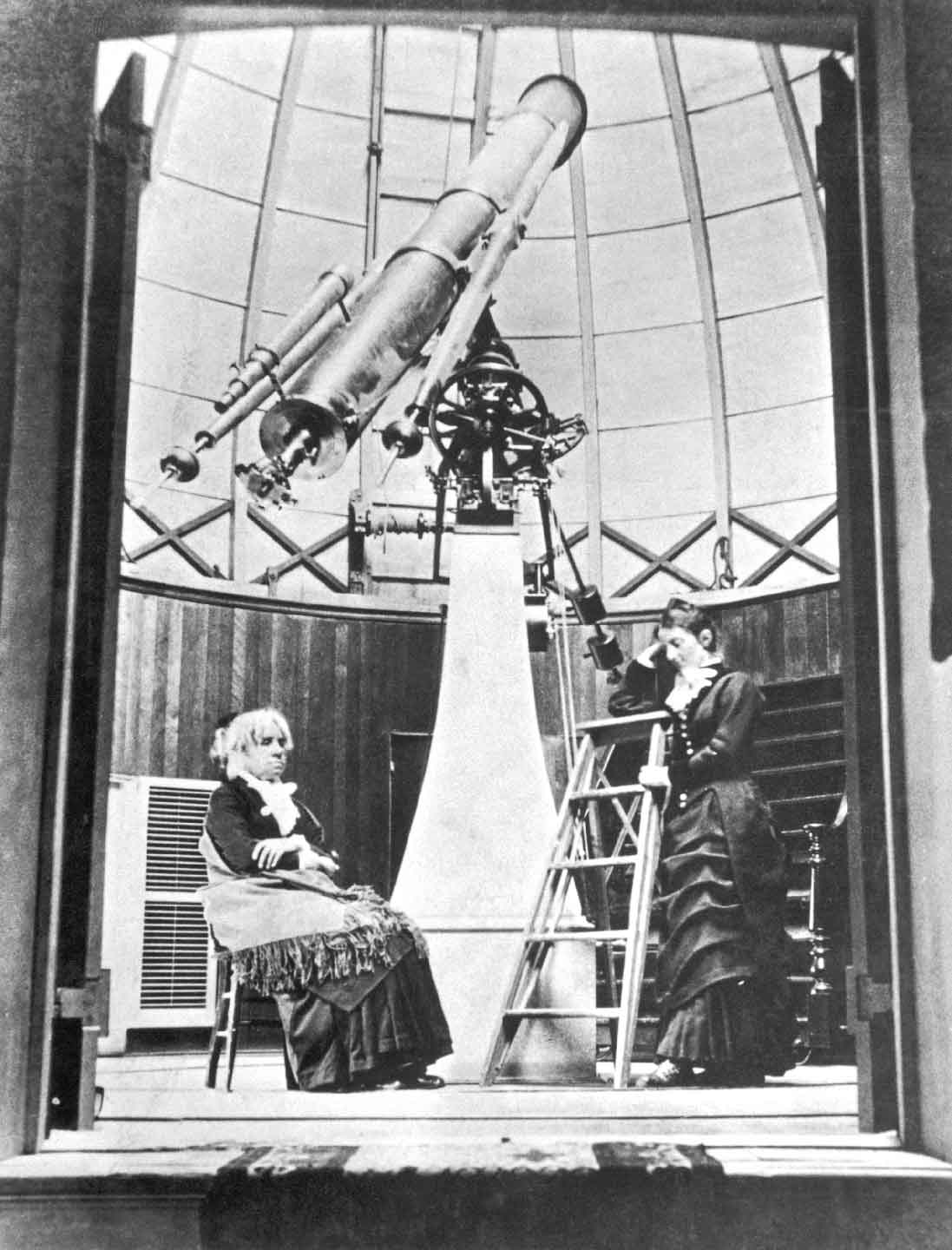Vassar helps celebrate Maria Mitchell’s 200thStudents, faculty attend “Women in Science Symposium”
Vassar helps celebrate Maria Mitchell’s 200thStudents, faculty attend “Women in Science Symposium”
Two members of Vassar’s science faculty and about a dozen science majors joined hundreds of others in the field recently to celebrate the 200th birthday of Vassar’s first professor, world-renowned astronomer, Maria Mitchell.
Assistant Prof. of Astronomy Colette Salyk was a guest panelist, and Chemistry Prof. Teresa Garrett and 11 students attended the Maria Mitchell Association’s 2018 Women in Science Symposium Oct. 5 and 6 in Wellesley, MA. “It was an honor representing Maria’s school at the event,” Salyk said. “Everyone at the conference knew she taught at Vassar.”

Mitchell was one of the first faculty members to be hired in 1865, and she taught astronomy from an observatory that was built for her on campus. The building currently houses the Education Department. Mitchell was born in Nantucket, MA in 1818 and died in 1889.
Salyk and her fellow panelists discussed the topic, “Retention: Strategies for Stemming the Leaky Pipeline and Ending Unconscious Bias.” She said the other members of the panel had been working in the field longer than she had, “and they told some disturbing stories about being treated badly” by male colleagues. “I have not had those experiences, and that made me hopeful that things are getting better,” Salyk said, “but I learned we are not all going down the same path.”

Vassar students Rebeca Muresan ’19 and Paige Anschutz ’21 said they felt empowered to have been a part of an event that celebrated the work of women in science. “I grew up in Eastern Europe, where women are generally excluded from careers in sciences except for the bio-sciences,” said Muresan, a chemistry major from Bucharest, Romania. “It was inspiring to be among so many women in all fields of science, but it was also eye-opening to hear some of the truly awful stories from some of the older women. In a bubble like Vassar, where many of my professors are women, you don’t see the problem, but it still exists in much of the world.”
Anschutz, a neuroscience major from Kansas City, MO, agreed. “It was empowering to be there, and I learned the importance of providing mentors to young girls, from elementary school onward, so that they can see what is attainable in the field,” she said.
Anschutz said she was especially inspired by a talk given by renowned astronomer Jill Tarter, who has spearheaded the search for extraterrestrial life. “Jill told a story about arguing with her Dad when she was about 8 years old,” she said. “She said she climbed on top of a washing machine to be at eye level with him when he told her to pay more attention to work around the house that women should be doing. She said she told her father, ‘I want to be an engineer,’ although she didn’t quite know at that age what engineers did.”
Salyk said she appreciated the warmth and support she and other members of the Vassar contingent experienced at the conference. “There was a lot of informal networking and talking as colleagues and mentors,” she said. “It was much more colloquial and less competitive than many scientific symposiums I’ve been to.”
Salyk added she was proud to be a part of an astronomy department that Mitchell had launched. “Maria’s presence here at Vassar is still quite significant,” she said.